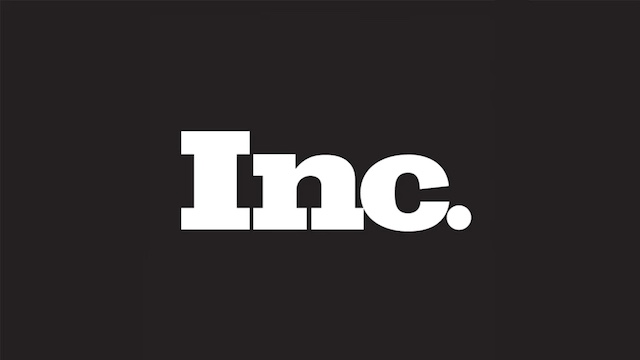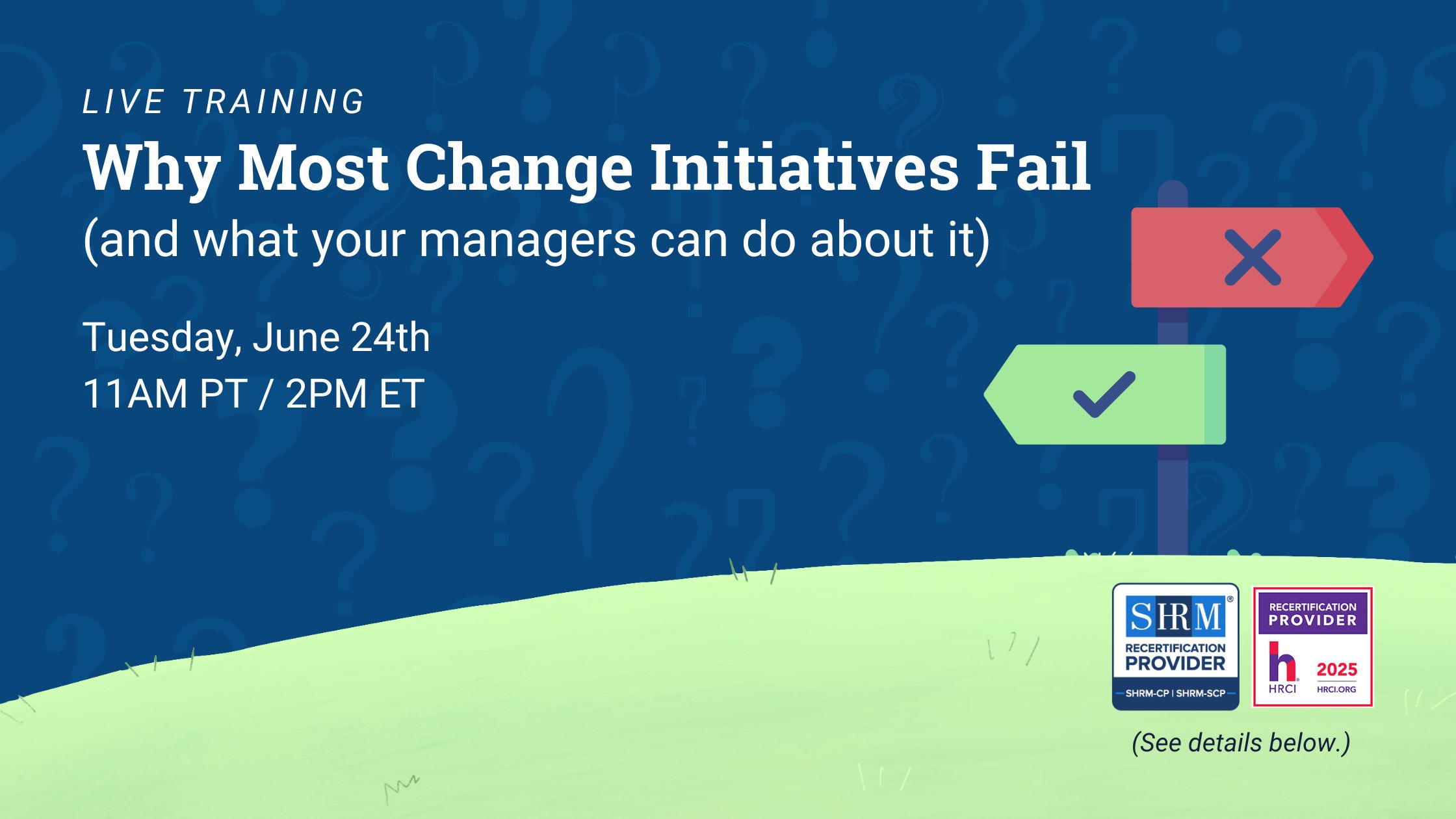How can HR leaders manage new workplace issues that are arising as a result of the coronavirus? What are the most effective ways to bring leadership onboard crisis communications plans? Is there a best practice for sharing operational updates during a time of change?
These were some of the urgent questions asked by HR professionals during our live webinar earlier this month. Titled Crisis Averted! How HR Can Manage Reputational Risk in the Digital Age, this event featured Beck Bamberger, founder and CEO of BAM Communications, who shared her four-step plan for HR professionals to prepare for major events, and answered many topical questions from the audience.
To support HR professionals as they work to address coronavirus concerns in the workplace, we at Intoo are making the full webinar available, and providing an extended recap below.
Why prepare for reputational risks and crises?
Do companies—especially smaller or newer companies—need to plan for reputational risk events? Absolutely, according to Beck. “If you’re a company functioning, a crisis can always arise,” she said, pointing to the current coronavirus pandemic as an example.
HR professionals especially need to plan for these types of events. “We’ve seen HR people and heads of HR are increasingly getting involved with the people we’re talking to directly, which are typically heads of marketing, CMOs, PR reps,” Beck said. “So we’re seeing, more and more, the integration of the HR function or person coming into the fold, even on the level of strategic storytelling, to make sure they’re involved at the onset before we start pitching…. It’s good for them to know and be focused on what are we pitching out to the media, what are some of the goals that we’re going for on a proactive level.”
Beck gave three main reasons why HR must prepare to address reputational risks:
People are your biggest assets. HR professionals already know that people are an organization’s biggest assets—“but that comes with dangerous scenarios,” Beck said.
It’s the digital age. Beck pointed out that “the internet remembers forever,” and that any information shared by any employee on the internet, whether it’s on Slack or Zoom or Twitter, can be found and quoted by the media.
Size does not matter. Beck said smaller companies sometimes believe they will not attract media interest, but that this is a mistaken assumption. She pointed out that even companies with less than 100 employees that are not publicly traded still make news headlines.
To illustrate the need for HR professionals to prepare for crises, Beck took a poll of the webinar attendees, asking: “Have you been faced with reputational risk events in your HR career?” The results showed that layoffs (62%) top the list of events HR professionals manage, followed by sexual harassment (48%) and ethical missteps (38%).
How to prepare for reputational risk events: A step by step guide
Beck provided a 4-step plan to prepare HR practitioners for crisis events.
Check in with comms now
Beck urged HR to align with their internal or external comms teams immediately. “Seriously, today, given this virus, check-in, request that meeting, get them on the phone, on Zoom, whatever, and say, ‘Oh, howdy, I need to be involved. I need to be able to see the crisis plan.’”
Beck recommended a full evaluation of existing plans to make sure they are comprehensive and up to date. “Even if you’re like, ‘We’ve got a plan in place and it’s good,’ I’d very much encourage you today, this week … get the plan. Then review, is your function included in this? Are you fully integrated? Are you considered? … It should be robust if you’re lucky and prepared. If it is not robust and you’re like, ‘Oh, this looks a little loose,’ now is the time, given everything going on, to get that fleshed out.”
Develop a plan for all HR-related and reasonable events
A good plan should define the crisis team and the actions that should be taken. “Outline the roles and the responsibilities of this crisis team,” Beck said. “You’re going to then have the step-by-steps for the actual event that happens.”
For HR professionals, common scenarios to prepare for include:
- Death of a key employee
- C-suite executive taking leave / stepping down
- Sexual harrassment allegations
- Layoffs
- Inappropriate behavior on social media
- Shooting
- Natural disaster
Know the crisis management team
Beck urged HR professionals to fully understand all the players and their roles in the crisis management team. “You should be one of these members, absolutely. But who else is on the team? Make sure you’re like fully integrating yourself. This is how you’ll get to know exactly what your role and function is going to be.”
“Ultimate goal for this team is, you’re here and you’re in the defense mode. You’re mitigating the risk of it spiraling out of control. Usually when there is a crisis happening, your best bet, your best hope, is for it to pass quickly, mitigate the situation. This is what we’re seeing with the virus outbreak, especially in China. Bringing those virus numbers down as quickly as possible, showing that it’s under control, making sure everyone’s safe and well, no more deaths rising.”
Beck recommended a team of between four to a dozen people, depending on the size of the company. Potential members are HR, public relations and comms, department heads, board members, and at least one person from the executive team.
Prepare your communication channels
Beck emphasized the importance of maintaining open communications. “You don’t want to put up the roadblocks,” she said. “You don’t want to say, ‘Oh, don’t talk to us,’ or, ‘I can’t be accessed,’ or, ‘Don’t come to me.’ This is really where you want to be saying, ‘Hey, I’m available for questions. Here’s how you can get a hold of me. You can come into my office, you can come onto my Zoom in this time of remote work.’”
Instead of waiting for employees to reach out to them, Beck advised HR professionals to go out of their way to reach out to employees. “You cannot expect the employees to come to you early on,” she said. “You’ve got to be the proactive ones. You have to be able to say, ‘Here’s where we are with this crisis, here’s what we’re implementing. I am available at these times… I look forward to it.’ You got to really open the floodgates. Don’t assume, ‘Oh, they know who I am, I’m head of HR. Of course, they can just come to me. It’s an open door policy here.’ That’s not the best policy in a situation like this. Really welcome in the communication to you.”
Beck also reminded all HR professionals that communication, even during a time of crisis, can be open to public scruitiny. “Assume the internal communication, email, Slack, Twitter, social media, Google chat … text messages, it is external. It could be extracted, it could be leaked. It could simply be screen-shared or screen-grabbed.”
At the end of the webinar, Beck answered some pressing questions from the audience:
Do we need to work to get leadership on board with a crisis management plan? And if so, how do we get leadership buy-in on that?
“Absolutely. I would go to them with those three reasons [given at the start of the webinar]. You can take this deck and say, ‘Hey, just attended this. Really learned a lot here. I don’t know if you’re aware, but there’s really three big, big reasons.”
Considering the results of the poll that showed nearly two-thirds of HR professionals have had to manage layoffs, what are some specific ways to manage reputational risk during layoffs?
“Layoffs are unfortunately often attributed to the company’s not doing well…. You have to manage this with honesty, of course, and accuracy. If the company is wildly not profitable, going in the dumpster, et cetera, then that is one thing and you can’t hide or shirk. However, if it is because you need to have a strategic pivot, if there are people that simply are just not needed at the company anymore, position it as, ‘This is the evolution that we need to have in order for this company … to address the digital age revolution, evolution of our industry. We unfortunately had to make these cuts in order to prepare for the future, which might mean on the flip side that you’re hiring for different people with different skill sets, et cetera.’”
“So our advice in this section is to consider not just [saying], ‘It’s doomsday and we’re just trying to save ourselves,” but instead, “We’re being sadly, but proactively in the evolution of this company, preparing for the future….” Not, “Oh my gosh, we’re on the defense. So now we have to fire all these people or lay off these people.’ And [instead] say, “Hey, we’re preparing for what is needed in our continued evolution of this company and being in this industry. Therefore, unfortunately we have to let go of these folks.’ That is assuming also that there is not a way for those folks to get trained into new roles and new functions.”
We’re a smallish company and we don’t have a comms team. How can we best prepare?
“Find an agency that can do a project as a crisis prep plan. There are many that do that. It can cost you $10,000-$20,000 depending on like how elaborate it is, but … it doesn’t cost you $100,000 to get this plan in place, for example. So source out and see who can do that.”
“My best suggestion would be get an external outside team that can do this and get you that plan in place ASAP so you are prepared…. Of course, if this [coronavirus outbreak] is not a wake-up call to get your plan in place, I don’t know what pandemic you need. So please, there are those external resources…. Even you’re like, ‘Yeah, we’re small and we don’t have that team,’ that is okay. Get an external one. There are many agencies out there that can prepare you for that.”
What if it’s the organization’s leader creating issues on social media or in the press?
“Boards can have a lot of say in exiting that person…. You need to think and navigate whom on a board level you can go to and address this with. Not in a gossipy way … but you should be raising the flag that this has been noticed.”
“That’s the approach I would take. You are the front person for the employees, and if it is at all impacting them, then that is in your realm to discuss. Take that power. You are the representative of the people who are here at your company and who will eventually be here at your company.”
How can HR manage the coronavirus issue?
“As head of HR, your number one concern is your people and the wellbeing of your people to be productive and contributing assets to your company. What we’ve done as an example [at BAM Communications] is we’ve just followed suit of what all the tech companies are doing. Everyone will work remote, everyone, just to be super precautionary.”
“I’m sure some of you are like, ‘I’m in Ohio, we don’t have this thing going around.’ Who cares? It always does well for you to be as proactive as possible in a situation like this, to tout and showcase that you have your employees health and wellbeing first and foremost, that you further encourage people that if they have a cough, if they feel bad, if they feel a little under the weather, set yourself at home.”
“I know of course not everyone may be able to do the remote, but there might be some sections in your company that … can be remote. See if you can then divide and at least segment out the non-required people to be physically in person…. Show your people are first….. Remind them of the sick policy, encourage them to use that and take it from there.”
We are an international company. Do you have any tips for preparing for crises and coordinating among multiple locations?
“Let’s say you’re having an activist campaign or a march or something, or a walkout or some protest, and it’s Brazil, but you have your headquarters in Philadelphia, something like that. The best thing is then to consider, who are the heads of departments or heads of those regions that should be on that crisis plan team.”
“So if you have … 17 cities, it might not have to be all 17 cities, but it might have to be four or five people from the regions that can represent and be on that crisis, that plan. So definitely consider that on that crisis plan of who’s on that team and make sure those local representatives are involved.”
I work in the travel industry. Coronavirus has the biggest impact on travel. There’s just so much we don’t know, and the information changes daily. Our industry is afraid of layoffs due to decreased travel, due to demand changes. How can I convince leadership to share operational updates and the potential financial impact that will have on us?
“I am shocked you’re working for a place where they are not doing this, so that’s what would be my concern, number one. I find that shocking that’s not happening from a leadership perspective, so what I would go to is [talk to the leadership].
“Now, what could be your issue here, particularly for your company, is, well, they don’t know yet. We don’t know exactly the impact that this is going to have…. I was reading Wall Street Journal yesterday and they were saying it’s going to be $30 billion for the airline industry but … no one knows exactly.”
“The best thing you can have then in place is for you, on a consistent basis, to say … ‘Hey, we’re monitoring the situation. We’ll have an update on X date, we’re going to be doing this. We’ll be sharing this when we have more information.’ Showcase to your employees that obviously you are aware, you’re not being silent, but you don’t have full information and so you will be seeing it and reviewing it on a consistent basis.”
“For example, what we just did here at BAM is we sent out our ‘work remote from home’ memo, and we said, ‘Hey, obviously updates will be coming daily, but we will review this policy every seven days.’ So every employee now here at BAM knows, ‘Okay, we’re taking a week by week. We might rapid fire that if we see something really explode, but right now this policy is in place every seven days until we say otherwise, this is the plan.’”
“What really gets people going, and is the dangerous part of crises spiraling out of control and then you having to be on the defense, is when people are not getting the information. Because then they start making up stories. Then they start gossiping. So you need to feed them information…. You send a statement that says, ‘Oh, we’re aware of the situation, we’re collecting our information. We’re going to get back to you at this time.’”
Do you recommend having social media policies or guidelines in place to help reduce reputational risk? Do these strategies work?
“Absolutely. There is a phrase and we use it here at BAM. COA: cover our asses. I hate to use that on a webinar. I don’t know if that’s appropriate, but COA, have that in your handbook absolutely spelled out…. What are the expectations?”
“Definitely check, of course, with your legal teams on what can or cannot be said, because people have personal accounts and things of that nature, but absolutely have the guidelines in place—and then the clear indication of ramifications of what happens when you do not abide by these. It’s one thing to have guidelines. What gets people in trouble … is when it’s not clear what the ramifications are.”
Any last words for the audience before we end the webinar?
“Yes. Now is the time. Now is the time. Again, you have a pandemic happening in the world. This is the time to have that plan crystal clear outlined right now.”
Intoo hosts two free webinars a month on topics related to talent recruiting and the future of work. Sign up to attend a future webinar and join the conversation.
The views expressed within this publication are those of the individual authors writing in their individual capacities only – not those of their respective employers. All liability with respect to actions taken or not taken based on the contents of this site are hereby expressly disclaimed. The content on this posting is provided “as is” and no representations are made that the content is error-free.











